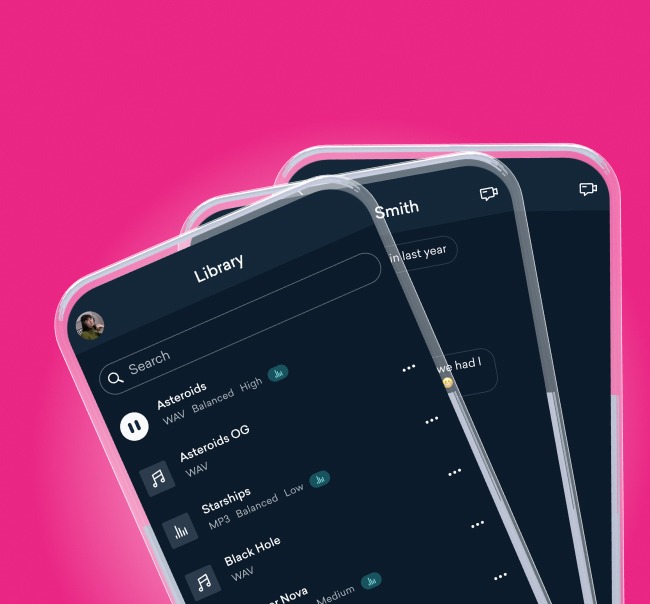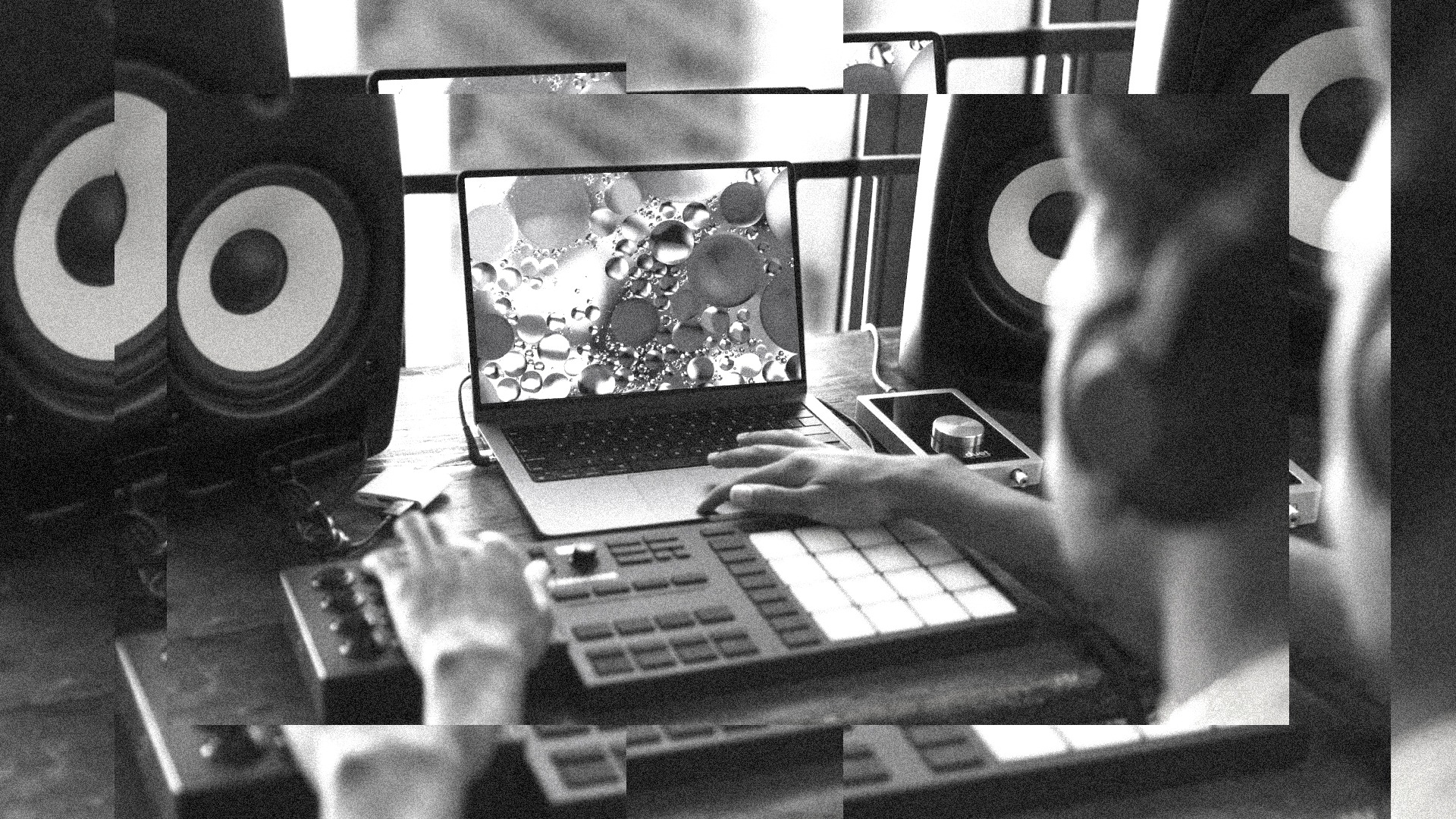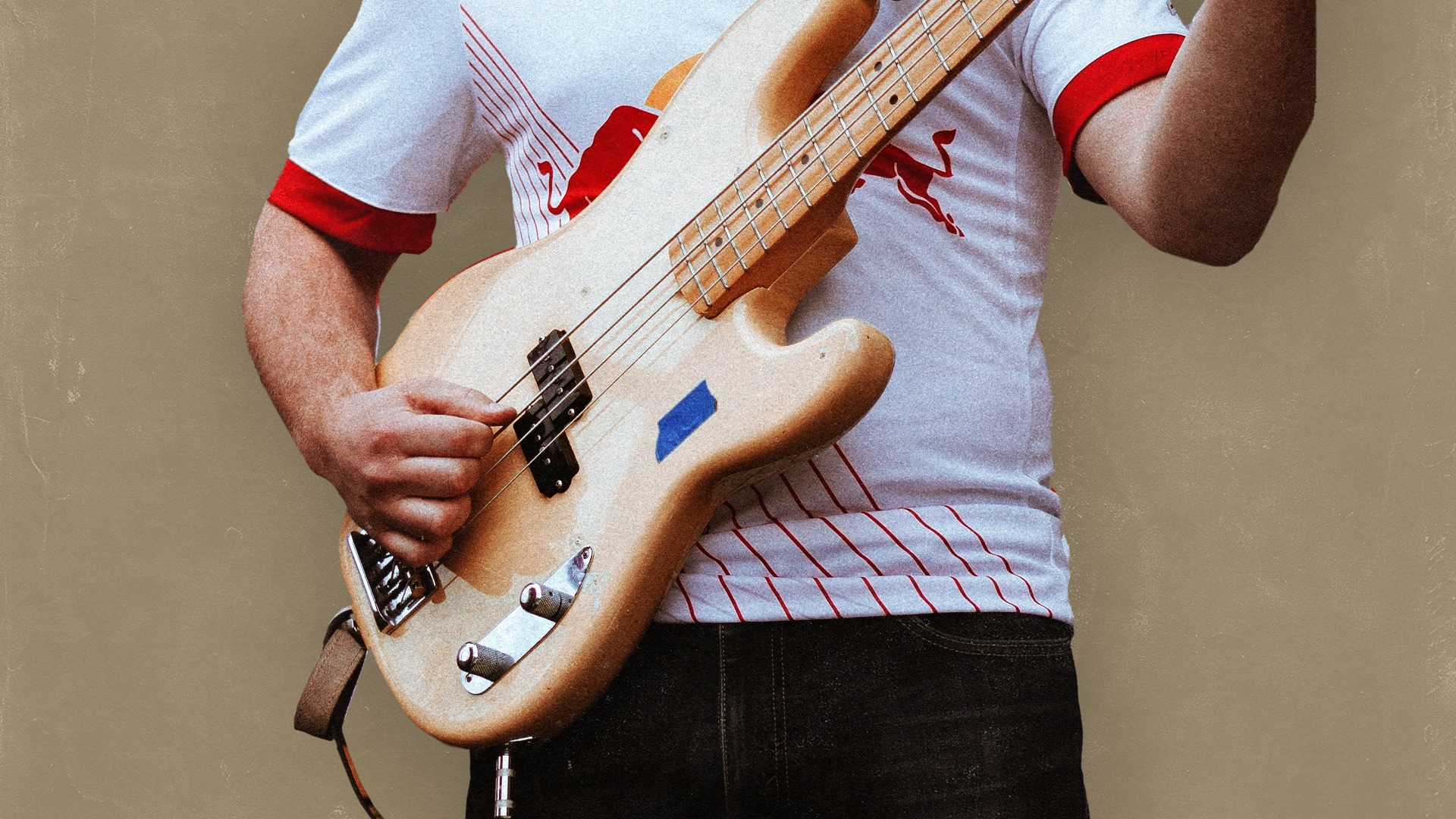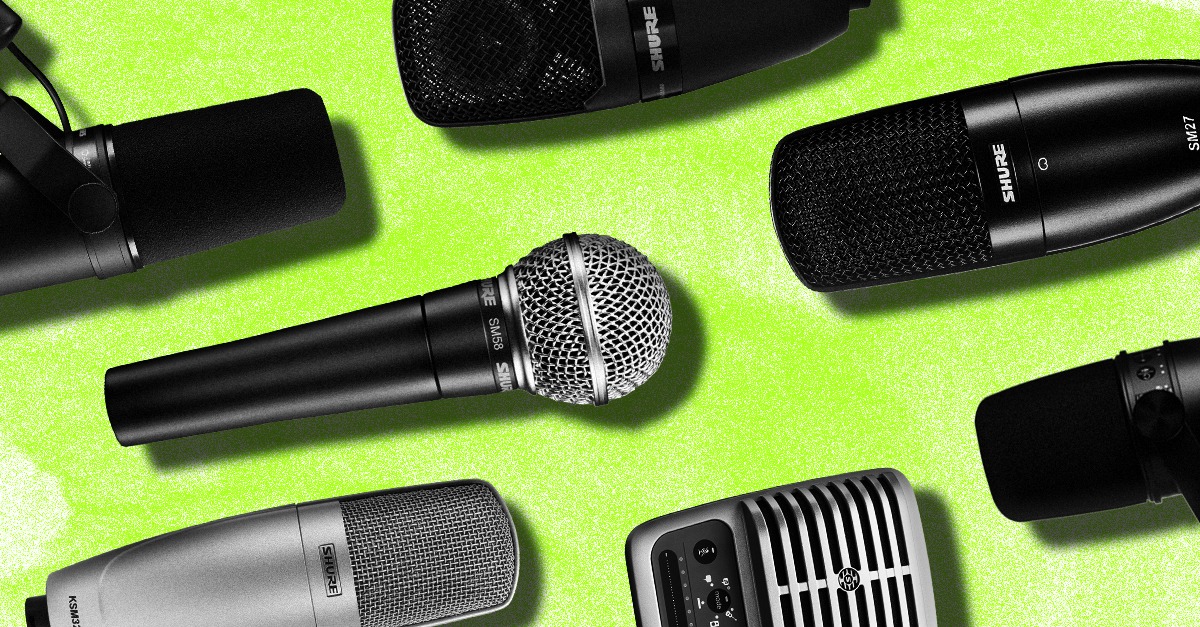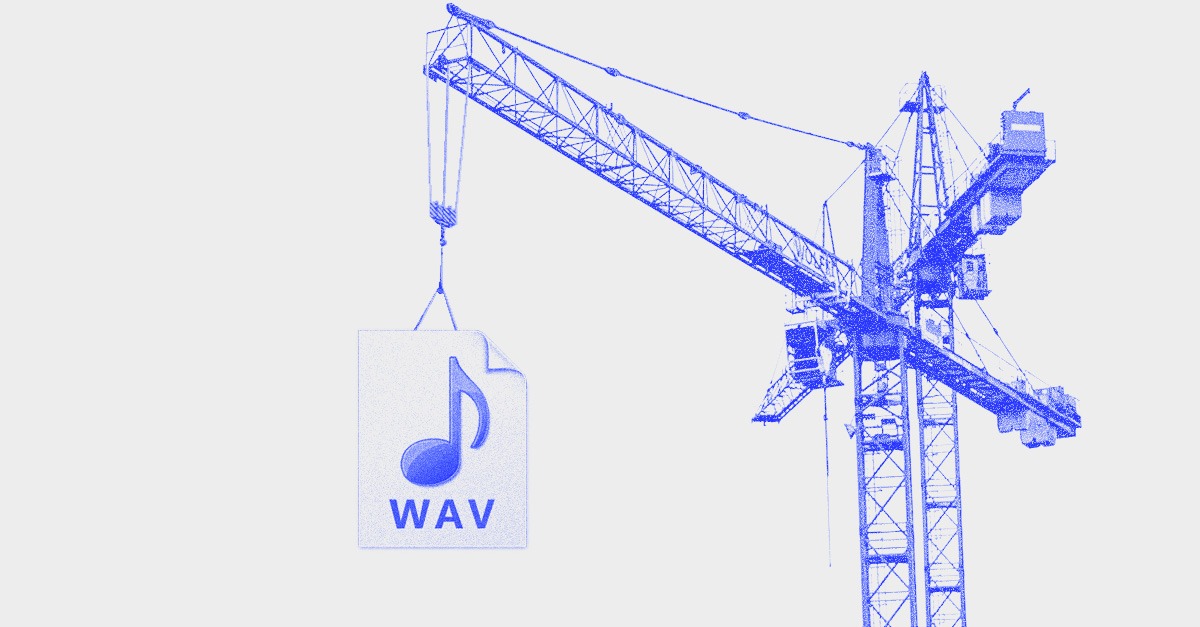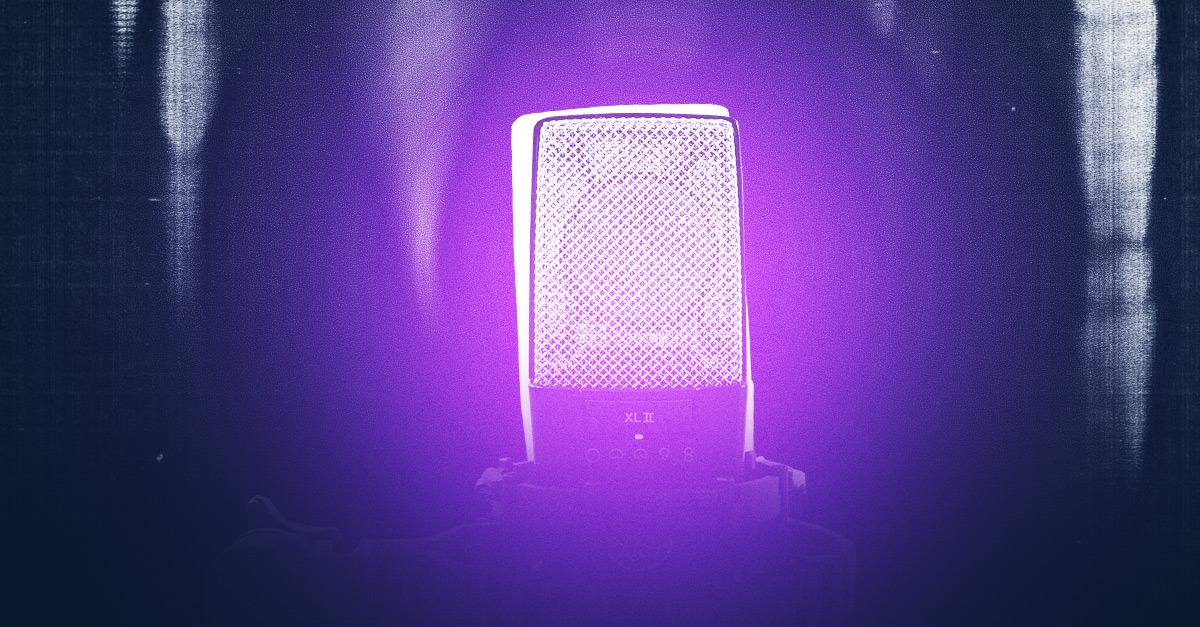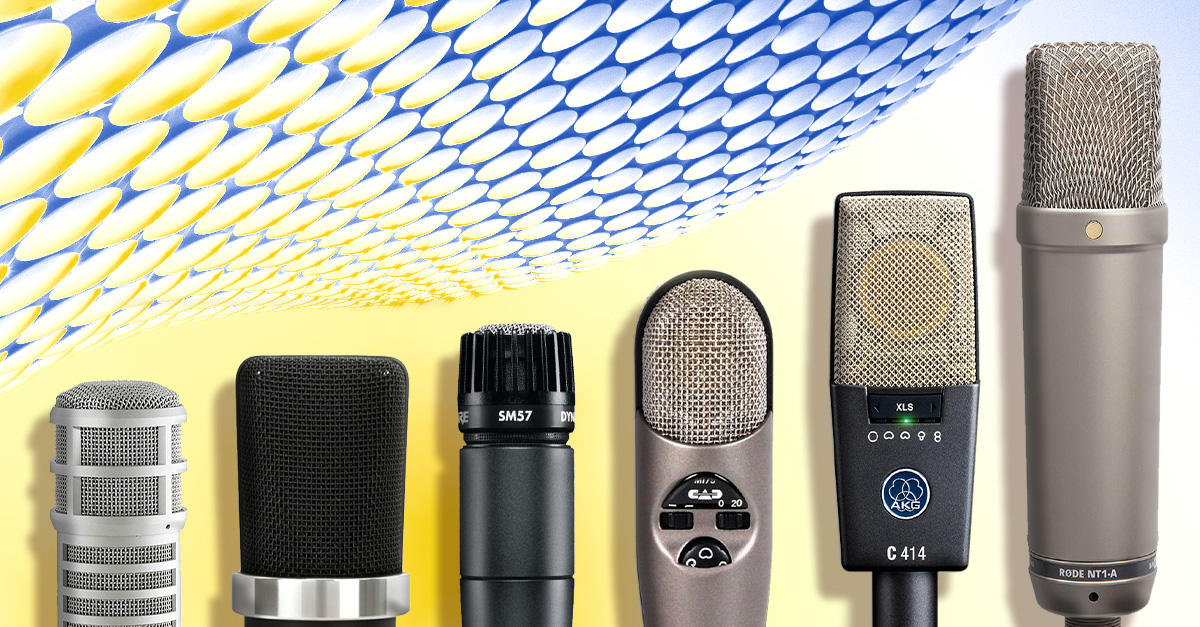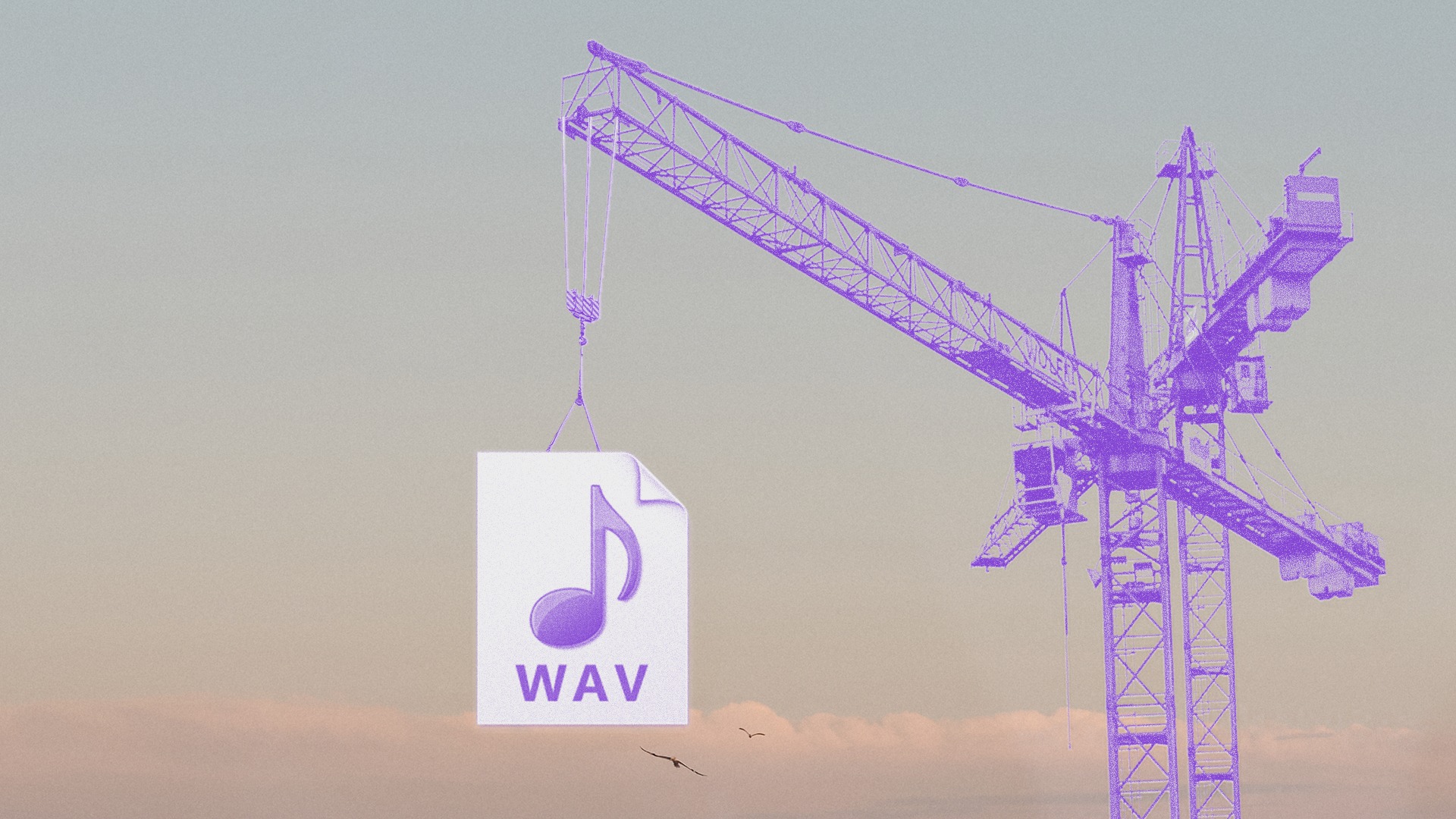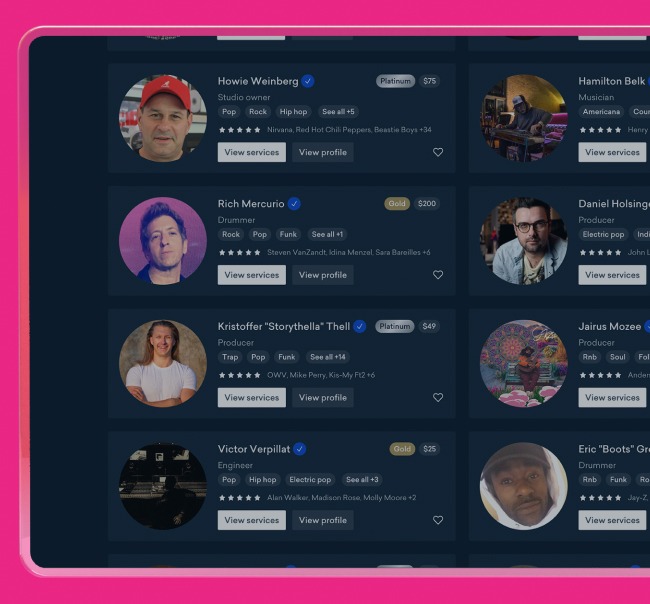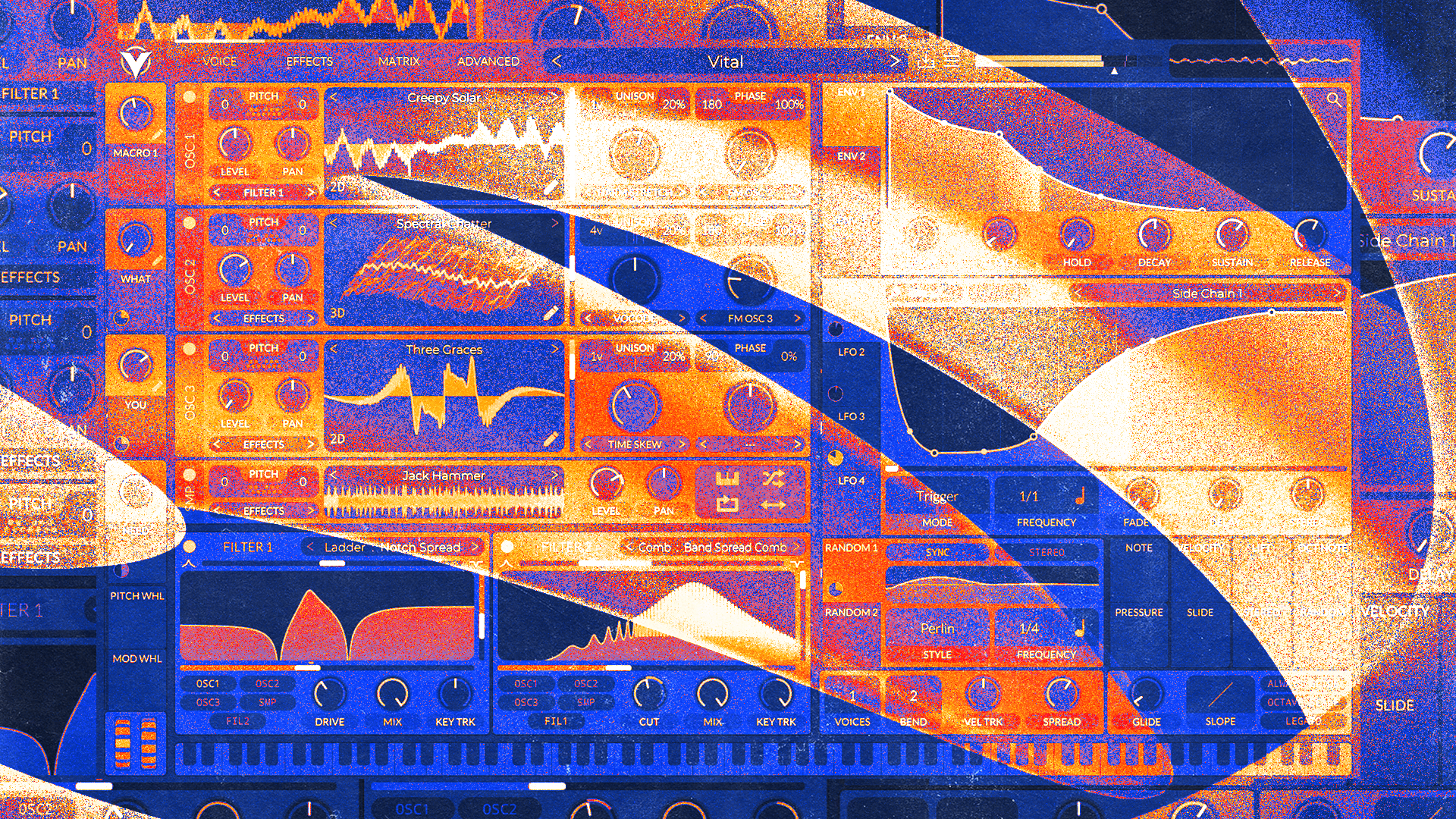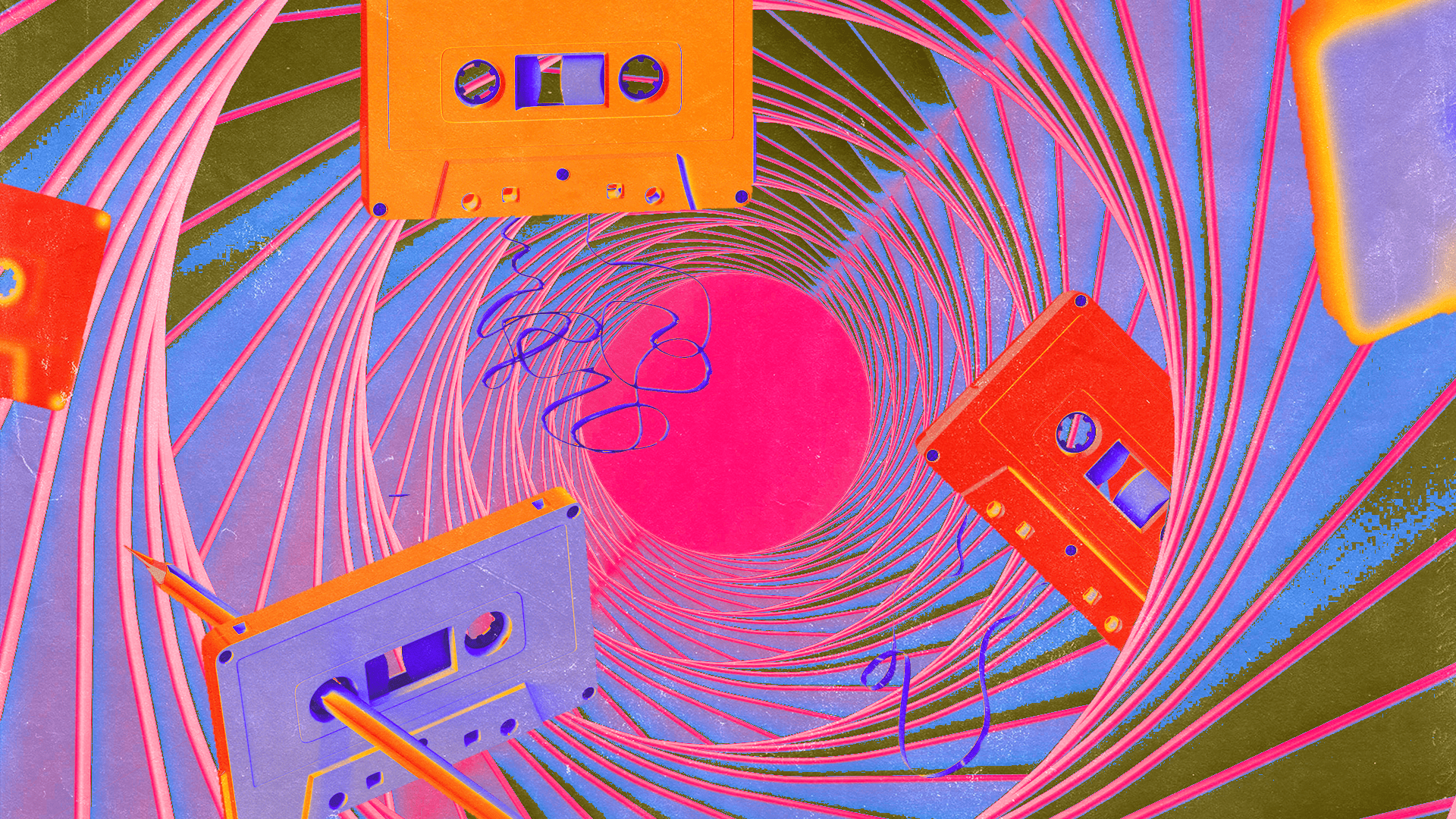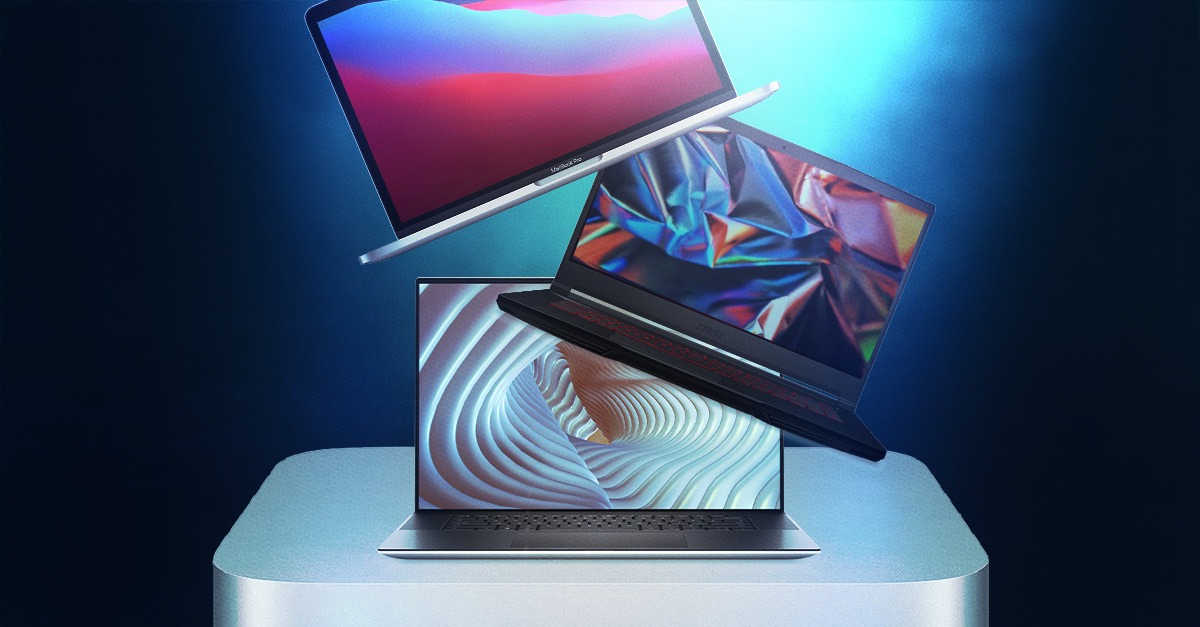
How to Start a Band: 6 Tips for Finding Musical Collaborators
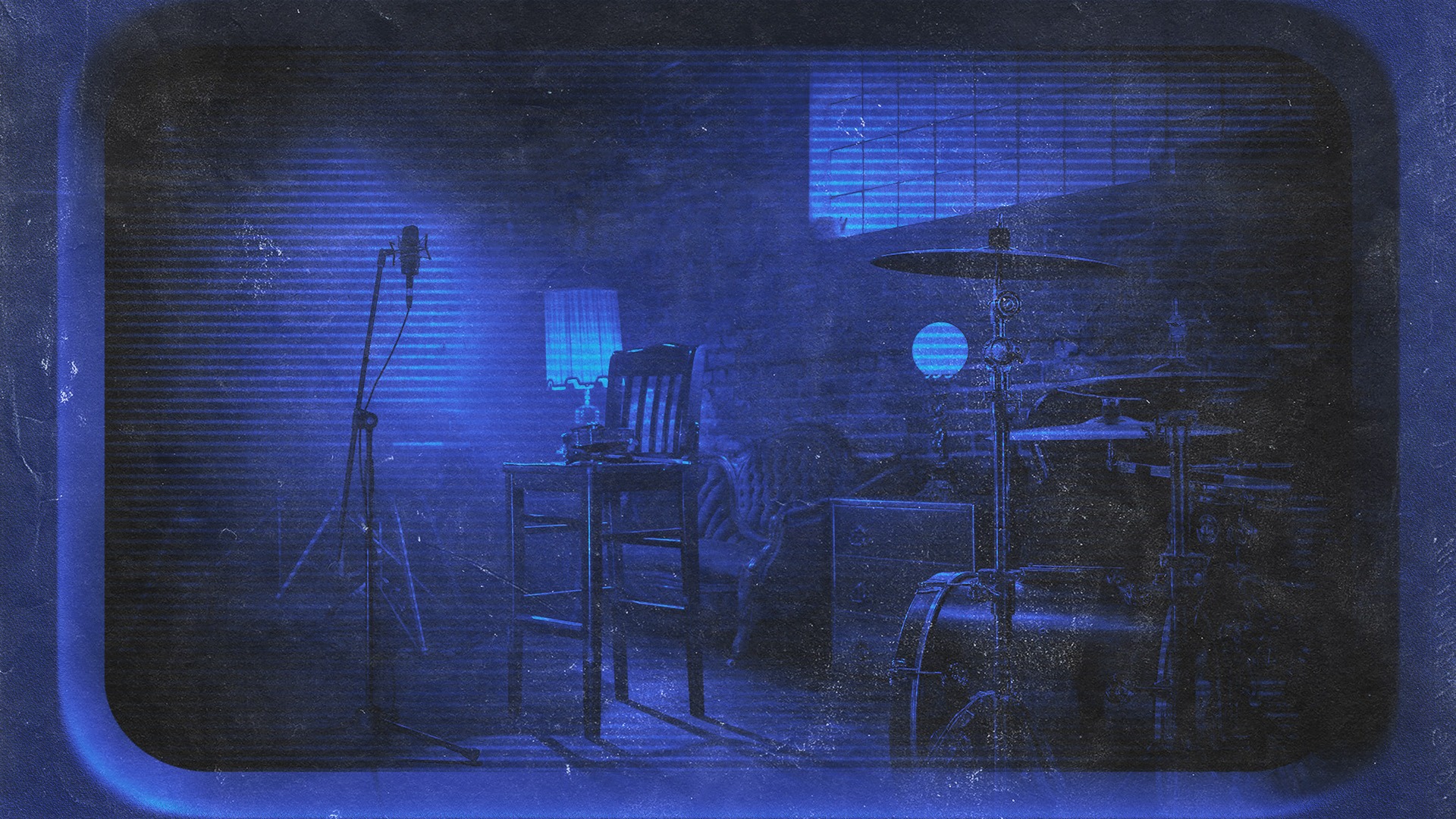
If you’ve ever wondered how to start a band and successfully make music in a collaborative context, you’re not alone.
So many solo artists and producers get stuck at the “making a band” stage for a reason—it can be really hard!
Starting a band can be an incredibly exciting endeavor, if all the right pieces are there you’ll surely take your songs to new heights and bring out the best in each other.
Working with a group of collaborators can add a new level of accountability, responsibility and planning to a project—it’s motivating to know others are counting on you to write a song or finish a release.
But starting a band has its pitfalls—creative visions can clash, contributions and effort can be overlooked or unbalanced and organizing a group of people is always a challenge.
In this article, we’ll look at everything you need to consider before you start a band and we’ll unpack a handful of ways to find the best possible collaborators for you next music project.
Let’s get started!
Four questions to ask yourself before you start a band
Bands are fun to start, but you need to have realistic expectations of what your band is and isn’t or you risk hurting feelings, causing tension and wasting time.
To make sure you and everyone else involved are in it for the right reasons, here’s a few questions to think about before starting or joining a band.
What kind of band are you starting?
Are you a classic rock band? Hardcore? Metal? Indie rock? Or maybe you’re a singer-songwriter in need of a backing band?
It should be somewhat obvious what music you’re going to make, but being explicit about what music inspires you is never a bad idea.
Having an ongoing dialogue where everyone shares music that inspires them or recordings they’d like to reference is one way to keep everyone inspired and focused.
What role will each member play?
Bands are formed in all sorts of configurations. Some bands are equal contributors, some bands have main members with hired guns, others have a rotating cast of members who come in and out.
Every situation is different, but in many cases, a solo artist will be the main person leading the band who then brings on hired musicians like a drummer, bassist or guitarist.
It’s less common for all members to be equal contributors, but it definitely can happen.
Aside from writing music other roles to consider are those of the recording engineer, mixer, manager, booking agent and other band administration roles.
These roles are ones that band members oftentimes fulfill, eliminating the need to hire externally.
A good example of this might be English rock band The 1975, in which there are clear roles for each member—Matty Healy as frontman, George Daniel as producer and other members as managers, art directors and beyond.
If you’ve ever wondered how a band can feature members that fully contribute to the effort of the whole in different ways, The 1975 is a great example.
How will you collaborate?
It’s never a bad idea to work out ideal ways of collaborating that work for everyone.
Having pre-determined rules about bringing new ideas and songs to the band will help streamline workshopping new songs and make sure no one’s time is wasted.
Does a song have to be demoed with lyrics before the whole band works on it? Is there a requirement to bring lead sheets with chords and lyrics to workshop sessions?
How does the band decide to keep working on an idea or to scrap it and how is that communicated?
As much as it can be fun to just “jam” and see what happens, usually, it’s best to come to workshop sessions with an idea in hand that everyone can work on.
How will you rehearse, record and perform your music?
On the more practical side, there’s a few things you’ll need to work out with your band to have the best chance of writing, releasing and performing your music.
For starters, you’ll need a practice space with all the equipment needed to at least rehearse and work on new music.
For that you’ll need a space with guitars, a bass, amps, drums, a mic, a mixer and a personal amplifier (PA).
You may also need to have a synth setup if your band is incorporating synths or drum machines.
If you want to home record your band, check out our article on creating a home studio setup with acoustic treatment.
Learn how to record at home
Follow along to learn every part of the process.

How to start a band
Alright, we’ve covered a few of the basic logistical questions you need to be thinking about if you want to start a band.
Now let’s go through a few ways to find good collaborators for your music.
1. Join a local band program
Whether you’re in school or if there’s an academic institution in your area there might be a band program you can join for little to no cost.
If this is available to you, I highly recommend joining since you’ll get great instruction and practical skills—but more importantly, you’ll meet of people who are interested in playing instruments together.
Plenty of great musicians and bands have formed in academic contexts—for example, Bad Bad Not Good, The 1975, Vulf Peck and Arcade Fire all formed in highschool or university music programs.
If you’re not currently in school, there may be adult music groups that meet up play together you could potentially join—even if you don’t have playing skills look around for community choirs or bands that are taking on amateur musicians!
2. Be part of your local scene
If band class just isn’t your thing or if it’s not accessible to you, your local music scene might be ready to welcome you with open arms.
If you live in a major metropolitan area, there’s probably lots to check out. So put your ear to the ground and start looking for locally organized shows that are interesting to you.
Even if you live in a smaller town, almost every mid-size American city has some sort of punk, rap or electronic music scene.
No matter where you live, keep your mind open to finding and hanging out in places where local shows happen.
Pay attention to show posters that pop up on billboards and on social media, and start attending and networking at the small local shows that happen in your area!
Attending local shows and meeting other artists is great, but your networking efforts will be greatly enhanced if you…
3. Make demos of your music and share them
Talk is cheap. You can tell other musicians in your circle that you have all kinds of ideas and desire to start a band.
Or you can just show them your demos and let them hear what you’re working on for themselves.
Making demos means investing in a home studio and getting comfortable with recording.
Fortunately, modern music production hardware and software make it easier and more affordable than ever to record solid demos at home.
If you’re curious about what you need to create a basic home studio set up, we’ve written about it past article.
In general, you’ll need a computer, headphones, an audio interface, a mic and music production software to get started.
Once you make some demos, put them somewhere where they can easily be shared and don’t be afraid to show potential collaborators what you’ve been working on.
4. Find collaborators with LANDR
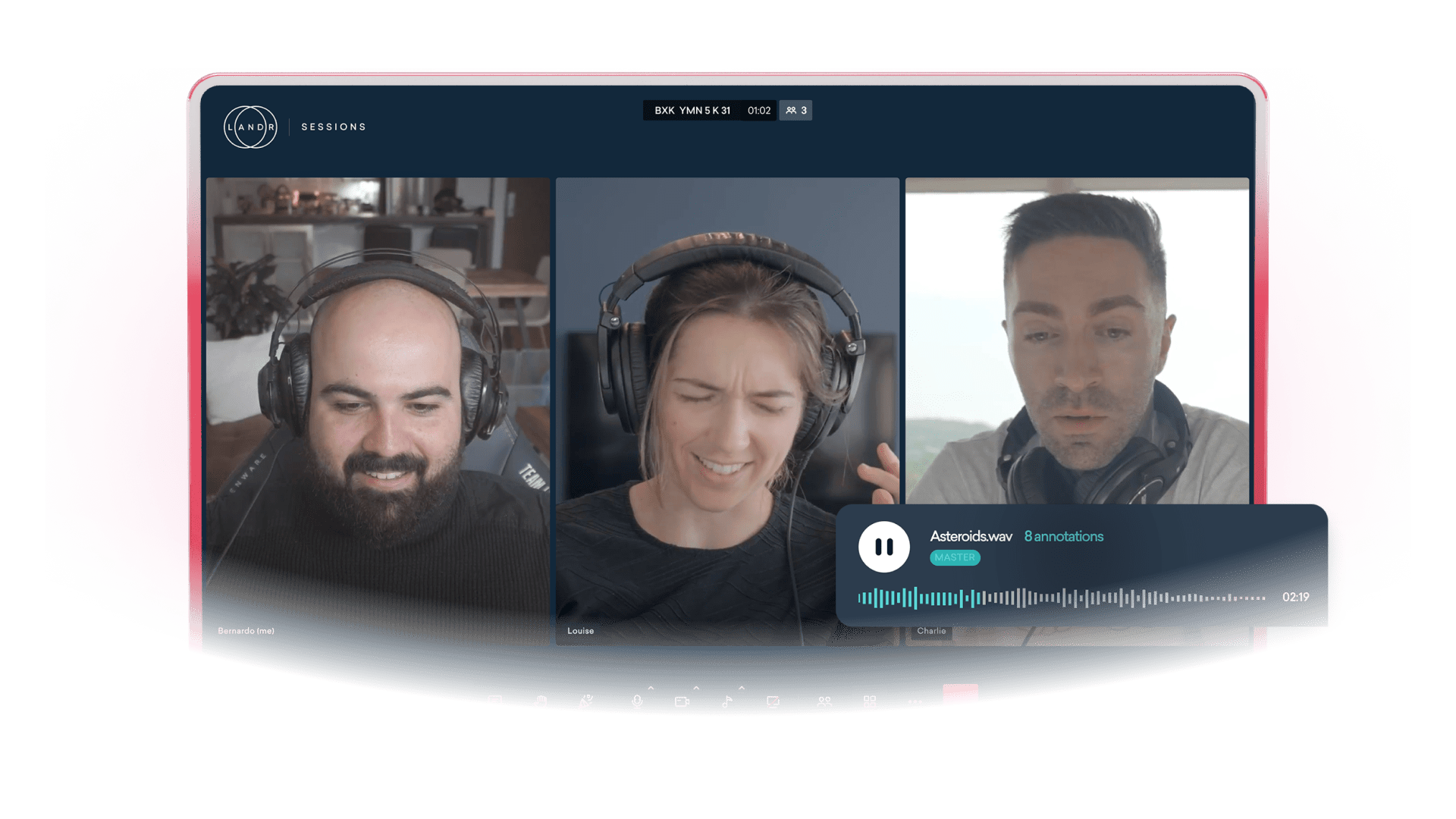
If you’re looking for an app that’s optimized for sharing demos and collaborating on new tracks, the LANDR App is a perfect and free option for privately hosting your tracks somewhere that’s easy to share with collaborators.
I love that you can comment with annotations directly on the waveform using the Projects section of the app.
LANDR Projects makes it so easy to clearly articulate where you want to make changes to a song’s mix or arrangement.
So check out LANDR Projects if you want to improve the way you and your collaborators work together on new music.
But, if you’re looking for new collaborators check out LANDR Network.
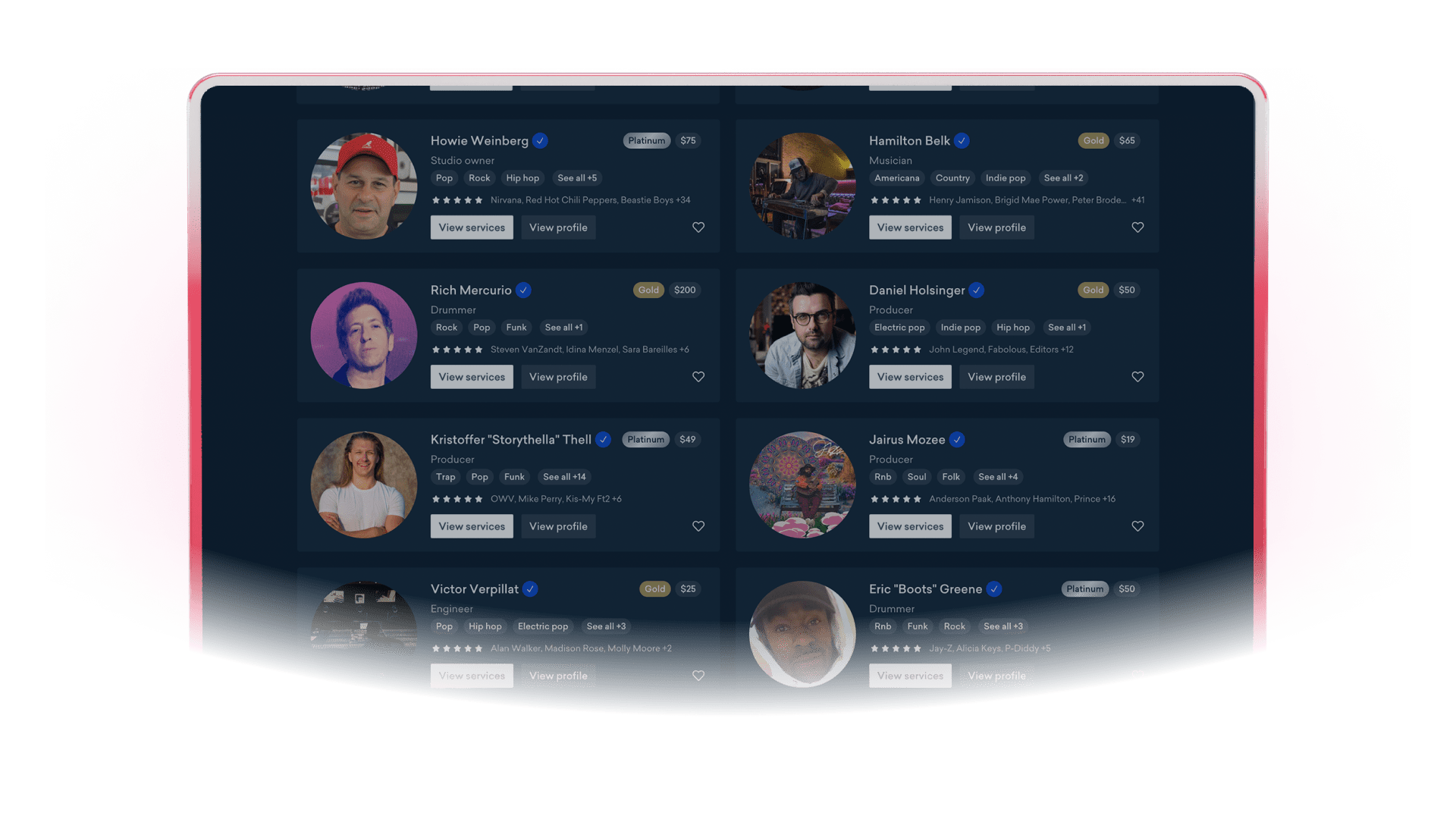
On Network there are over 50,000 active producers looking to meet and collaborate on new music projects. All you have to do is create a profile and start browsing.
You can search for specific kinds of collaborators or services by setting filters and searching for exactly what you want.
If you’re looking for mix engineers in Nashville, beat makers in Atlanta, or guitarists in New York simply configure your search and start connecting with the LANDR Network community.
With Network making it so easy to meet new collaborators and LANDR Projects making communication between producers super simple and fun, it’s a clear win to sign up and start using LANDR for free.
5. Play a solo show
While it might be nerve-wracking, performing a solo show can be a powerful way to attract like-minded musicians.
Consider starting off by looking for an open mic night at a local bar or cafe and sign up to play two or three of your tunes.
When you’re on stage, your music and style are on full display, providing a clear indication of your musical direction and abilities.
Capture your show on video or at least record it. This not only serves as a great promotional tool but also allows potential band members to see or hear your stage presence and musical skills.
Use this opportunity to share your vision. Talk about the type of band you’re looking to form and the musicians you’re seeking.
6. Host a jam night
Organizing a jam night offers a casual setting for musicians to connect and play together.
Choose a welcoming venue and invite guests who play a variety of instruments and styles to foster an inclusive and diverse atmosphere.
You might also consider setting themes for the nights, focusing on specific genres or artists to attract musicians with similar interests.
Approach the event with an open mind and reasonable expectations—jamming is supposed to be fun and spontaneous, it’s a space to experiment and try new musical ideas.
After the jam night, follow up with those you felt a connection with. Even if they’re not the right fit for your band, they might know others who are.
Conclusion
Forming a band is a multifaceted journey that blends passion, creativity, and a bit of strategy.
From joining local band programs to immersing yourself in the local music scene, each step you take brings you closer to finding the right collaborators.
Platforms like LANDR Network provide modern solutions for connecting with potential band members while hosting jam nights or playing solo shows offer more traditional, yet equally effective, avenues for networking and showcasing your skills.
No matter what, stick to your passions and don’t stop making music and meeting musicians in your scene.
Gear guides, tips, tutorials, inspiration and more—delivered weekly.
Keep up with the LANDR Blog.
